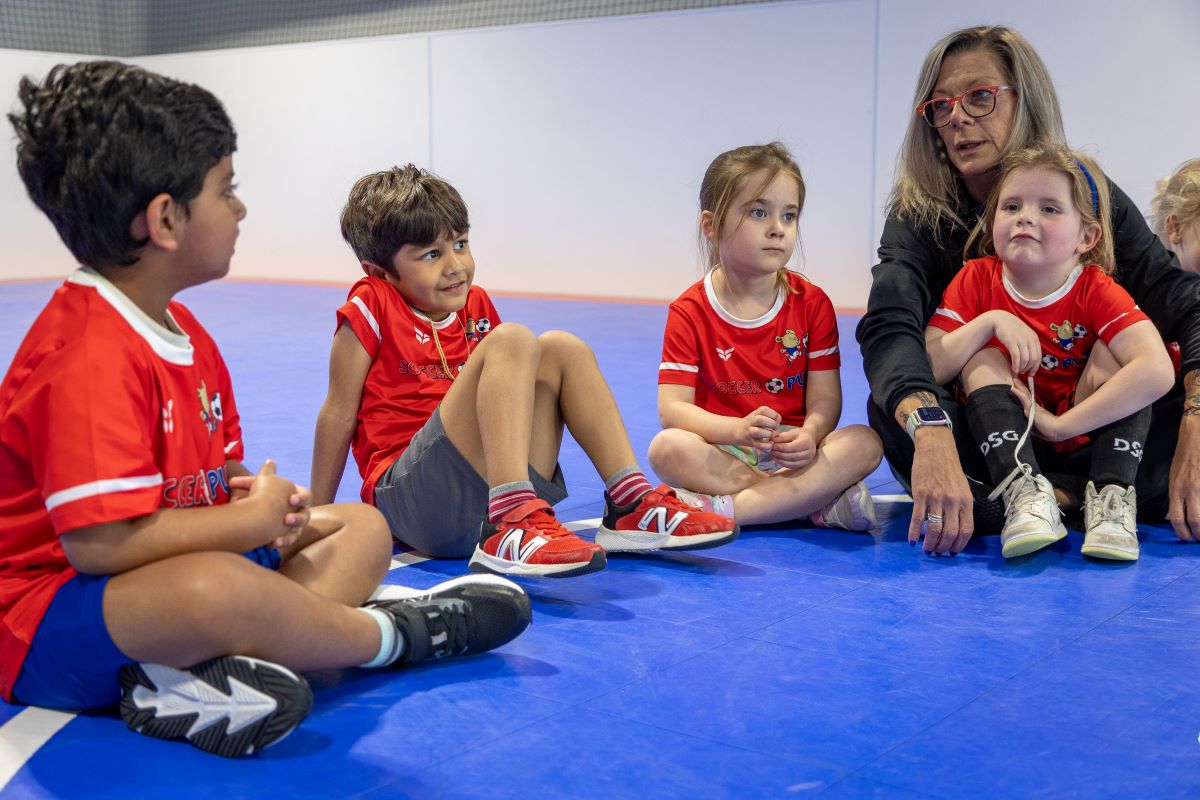Soccer isn’t just about kicking a ball around a field or scoring goals; it’s also a powerful platform for developing essential life skills, particularly social skills. For young players, the soccer field becomes more than just a place to play a game – it’s a social hub where friendships are forged, communication skills are honed, and teamwork is paramount.
The Social Arena of Youth Soccer
Imagine a group of kids, clad in colorful jerseys, running across a green expanse, chasing after a ball. What may seem like a simple game of soccer is actually a bustling social scene where children learn to interact, collaborate, and support each other. Youth soccer teams provide a unique environment for kids to cultivate the following crucial social skills:
- Communication: Effective communication is key on the soccer field. Whether it’s calling for a pass, directing teammates, or coordinating plays, players learn to communicate clearly and assertively. Through constant interaction with teammates, children develop verbal and non-verbal communication skills that are vital both on and off the field.
- Collaboration: Soccer is a team sport, emphasizing the importance of collaboration and cooperation. Players quickly understand that success isn’t achieved individually but through collective effort. By working together towards a common goal, children learn the value of teamwork, compromise, and supporting one another.
- Sportsmanship: In the heat of competition, learning to win graciously and accept defeat with dignity is a valuable lesson. Soccer teaches kids the importance of sportsmanship – respecting opponents, following the rules, and displaying integrity, regardless of the outcome. These principles extend beyond the soccer field and into everyday interactions.
- Building Friendships: Perhaps one of the most significant benefits of youth soccer is the opportunity to make lasting friendships. Sharing a common passion for the game, children bond over victories, console each other in defeat, and create memories that extend beyond the final whistle. The camaraderie formed on the soccer field often blossoms into lifelong friendships.
- Conflict Resolution: Like any team activity, soccer occasionally involves disagreements and conflicts. Learning to navigate these challenges fosters important conflict resolution skills. Through compromise, empathy, and effective communication, players develop the ability to resolve conflicts amicably, strengthening their relationships with teammates.
The Impact Beyond the Field
The social skills acquired through youth soccer extend far beyond the boundaries of the field. As children grow and mature, the lessons learned in soccer – communication, teamwork, sportsmanship – become invaluable assets in various aspects of their lives. Whether it’s excelling in academics, thriving in the workplace, or forming meaningful relationships, the foundations laid on the soccer field pave the way for future success.
Conclusion: Join the Soccer Community
If you’re looking for a fun and enriching activity for your child that goes beyond physical fitness, consider enrolling them in youth soccer with Soccer Pups. Not only will they develop their soccer skills, but they’ll also cultivate essential social skills, make lifelong friends, and become part of a supportive community. Give your child the opportunity to thrive both on and off the field – sign them up with Soccer Pups today!
In conclusion, soccer isn’t just a game; it’s a powerful tool for nurturing social skills and fostering meaningful connections. Through communication, collaboration, and sportsmanship, youth soccer provides a fertile ground for children to develop into well-rounded individuals. So lace up those cleats, hit the field, and let the friendships flourish! Join Soccer Pups today and kick-start your child’s journey to soccer success and social growth!
